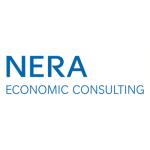Germany has brought its administrative principles up to speed
For many years, transfer pricing (TP) in Germany has been governed by various publications of the German Ministry of Finance. Due to the age of the publications, ranging as far back as 1983 (and arguably the most important one stemming from 2005), and the significant developments initiated by the OECD and tax authorities, many parts of the German regulation were confusing or simply outdated.
While in principle not binding for taxpayers and courts, administrative principles have significant practical importance as they govern how transfer prices are audited in Germany.
The Ministry of Finance has incorporated much of the international discussion to update the German regulatory environment with the changes of Article 3 of the German Foreign Tax Code and two new administrative principles, ‘Transfer Pricing’ (from 2021) and ‘2020’.
Recent publications of the OECD are explicitly attached as appendices to the TP administrative principles, reinforcing the importance of the OECD in shaping the TP consensus in Germany.
The two new administrative principles replace seven existing guidelines from the Ministry of Finance and go a long way in reshaping the German TP regulatory environment. This article focuses on the changes likely to have the most profound impact on future German TP audits.
Significant changes for the documentation of intangible contributions
Overall, the most noticeable changes to the German regulatory environment relate to the areas of loss situation, intangibles, services, and financial transactions. The sections regarding intangibles and the consequences for the audit of transfer prices using additional methods are especially far-reaching.
Much of the new administrative principles clarify the German tax administration’s distinct interpretation of the OECD guidelines. Notably, the German administrative principles do not distinguish between hard-to-value intangibles and other intangibles.
Valuable intangibles that demand a remuneration are considered unique and generally difficult to benchmark, with a clear-cut statement in the OECD guidelines that database license benchmarks will generally not be deemed sufficient proof for arm’s-length pricing (for hard-to-value intangibles).
Regarding intangibles, the administrative principles adopt the OECD requirement of a development, enhancement, maintenance, protection and exploitation (DEMPE) contribution analysis as a separate and distinct part of the functional and risk analysis.
It should generally be expected that high-level descriptive assessments of DEMPE contributions will not be sufficient to underpin TP solutions. The broadest possible definition of intangibles will require increased documentation efforts. Interestingly, the German Ministry of Finance takes a clear view that the pure exploitation of intangibles does not attribute a share of entrepreneurial profits associated with an intangible. This aligns with the view that the exploitation of an intangible primarily indicates which entity has the obligation to make a payment and does not create economic ownership in the intangible itself.
While the legal requirements to document DEMPE contributions to intangibles in a detailed manner following the OECD principles applied only to future years, the Ministry of Finance has clarified that, in their view, the new principles have only clarifying character when it comes to assessing transfer prices. Therefore, the key provisions pertaining to how to assess intangible contribution can also be applied to current tax audits of past years.
Implications for future tax audits
In combination with the 2020 principles, the 2021 TP administrative principles are prone to substantially increase tax controversy, particularly in the field of intangibles. This relates to the fact that the OECD guidelines are quite vague regarding how to assess value creation through DEMPE contribution to intangibles. As such, tax authorities may have fundamentally different views of DEMPE contributions compared to taxpayers.
The 2020 administrative principles explicitly allow tax authorities to check or corroborate the adequacy of a taxpayer’s transfer prices through alternative methods different from the presumably best method selected by the taxpayer. If tax authorities find their analysis more reliable, they can impose income adjustments. What qualifies as ‘more reliable’ analysis rests entirely within the discretion of tax authorities.
In TP audits, it is to be expected that German tax authorities will increasingly reject the classification of local companies as routine by claiming local DEMPE contributions and apply profit split analysis to impose higher local profits. The new views of German tax authorities on DEMPE contributions are also likely to increase rejections of intangible comparable uncontrolled price (CUP) studies in the future.
In summary, the 2020 and 2021 administrative principles have de facto shifted the burden of proof to taxpayers, putting them at significant disadvantage particularly when it comes to intangible controversies.
Recommendations for taxpayers
Taxpayers should anticipate and prepare for upcoming intangible controversies by supporting their assessment of DEMPE through in-depth reviews of functional contributions and RACE processes (responsible, accountable, consulted, informed), highlighting which contributions are pure exploitation and which cannot be considered entrepreneurial under any circumstances (and why).
Where major questions arise, multinationals should consider amending responsibilities, clarifying internal guidelines, or changing their TP model. Existing and future documentation should be adapted accordingly.
Additionally, it makes sense to proactively prepare corroboration analysis of the selected TP analysis through other methods that tax authorities are likely to apply in controversy. For example, in many cases it may be possible to support a transactional net margin method (TNMM) solution through a profit split analysis. Defending one’s TP model through complementary methods naturally helps clients prevent or mitigate future controversy or litigation cases.
Yves Hervé
Managing director, NERA Economic Consulting
Tom Braukmann
Senior consultant, NERA Economic Consulting













